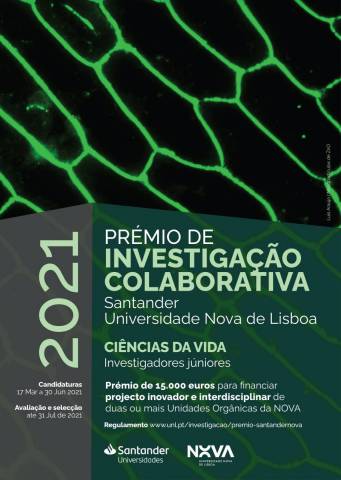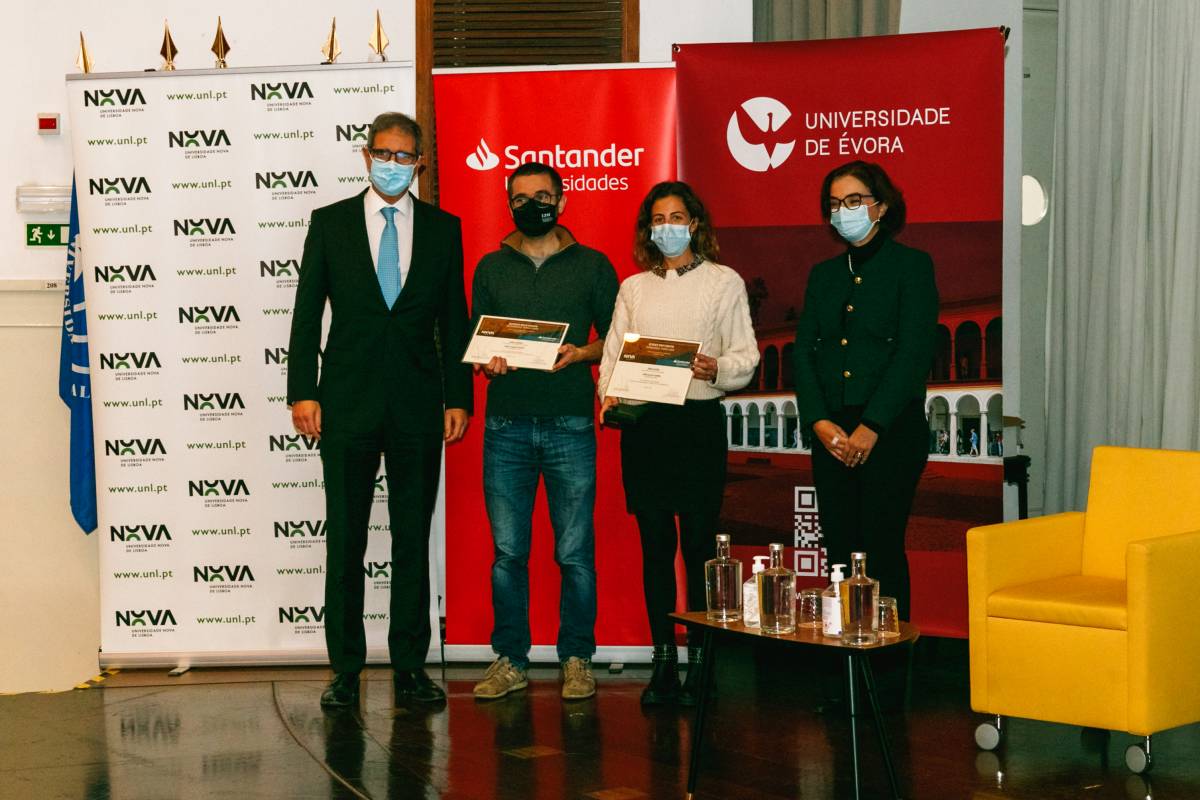
The winner of the 14th Edition of the Santander Collaborative Research Award/NOVA 2021 is the project “Graphene Smart Bandages for Diabetic Foot Ulcer Monitoring”. The responsible multidisciplinary team involves two organic units of NOVA, comprising the researcher João Coelho, from CENIMAT/I3N, of the NOVA School of Science and Technology | FCT NOVA, in collaboration with the researcher Inês Coelho, from CEDOC, of NOVA Medical School.

As researcher João Coelho explains, "the project aims to launch the technological platforms necessary for the future development of smart bandages with wireless communication capability for better training of patients and their monitoring by health professionals."
Inês Coelho recalls that “diabetes is a systemic disease that requires highly complex integrated healthcare and the associated complications, such as diabetic foot ulcers, affect 25% of people with diabetes, representing high costs and considerable pressure on healthcare systems.”
For this reason, the researcher adds, "the main objective of the presented project is to develop a flexible platform that allows continuous monitoring of diabetic ulcers in a non-invasive and comfortable way for people with diabetes, resulting in better healthcare and health outcomes by reducing hospital visits and associated costs.”
The platform to be created will consist of sensors dedicated to monitoring characteristic aspects of ulcers such as oxygenation, pH, temperature and humidity levels. In this way, it will be possible to monitor the progression and/or healing process of the ulcer in real time in order to manage a more appropriate treatment, without the need of a constant change of the dressings.
The sensors will be manufactured in flexible materials such as paper, in a sustainable way, by laser irradiation. This technique results in the production of graphene, an ultra-thin carbon-based structure, which has essential physicochemical properties for making sensors. This platform will then be inserted into a patch and tested in pre-clinical studies.
The Award was delivered today, during Science Day @South, at the Espírito Santo College Auditorium of the University of Évora, on the day CAMPUS SUL was launched.
The Santander/NOVA Collaborative Research Award aims to distinguish Research Projects to be developed by NOVA Junior Researchers and which involve at least two of the University's Organic Units. The Prize, in the amount of €15,000, successively contemplates Research Projects in the Social and Human Sciences, Life Sciences and Exact Sciences and Engineering. In 2021 it was dedicated to Life Sciences.